Disposable diapers are handy and simple to use. But did you know it takes at least 500 years for them to degrade?
While not everyone has access to reusable cloth diapers, there are alternative ways to safeguard the environment. This is with the most eco friendly diapers available.
In this article, we look into eco-friendly diapers. Is it better for your baby and the planet? Some tips on how to choose environmentally friendly diapers. We’re breaking it down below as you read on. Let’s go!
How Bad Are Disposable Diapers for the Environment?
The average baby uses between 5,000 and 6,000 disposable diapers before potty training. So what exactly does the consequence look like?
Disposable diapers account for around seven percent of nondurable household trash in landfills, according to a 2014 study from the Environmental Protection Agency. That’s about 3.3 million tons of disposable diapers dumped in landfills in 2018.
That’s huge!
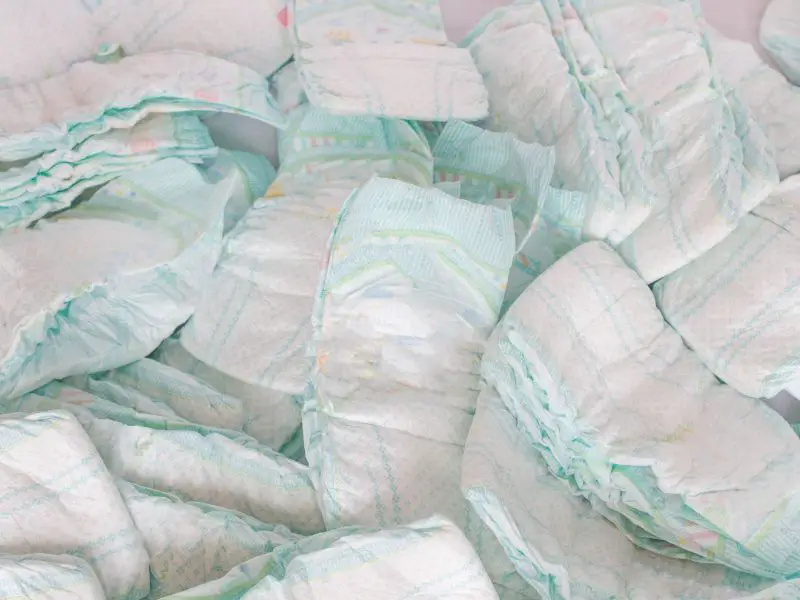
Eco friendly diapers are designed to have a lower carbon footprint and a minor negative effect on landfills. However, not all “eco-friendly” diapers are the same. Since the phrase “eco-friendly” is frequently bandied about in the same breath as terms like “organic,” “biodegradable,” and “non-toxic,” it may be difficult to know for sure what you’re receiving when you buy these types of diapers.
Different Types of Eco-Friendly Diapers
You mostly have three alternatives to choose from when it comes to environmentally friendly diapering: disposable, cloth, or hybrid diapers. Let’s take a more deep look, shall we?
1. Disposable
Most diapers you can buy off the shelf are disposable. But did you know you can get disposable diapers that break down and can be composted? This will save you time and help the earth at the same time. But it’s important to remember that these diapers aren’t entirely biodegradable. Single-use diapers that are good for the environment use better materials, but they need to be sent to a specific composting facility to make a difference.
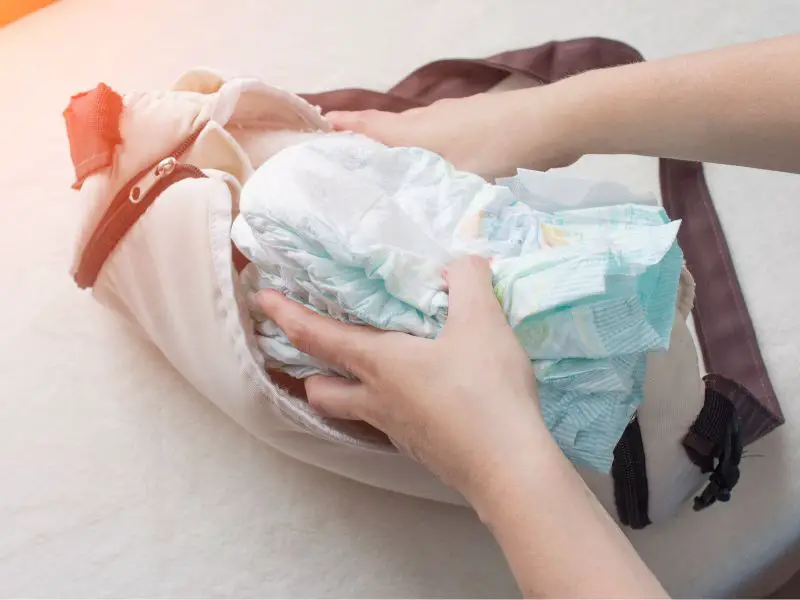
Pros
- Some components can quickly biodegrade, safeguarding the environment
- Very simple| and convenient to use
- Manufactured without harmful materials such as fragrances, dyes, and bleach
- Less use of plastic in their packaging
Cons
- Companies are experts at green-washing, giving the impression that their products are environmentally friendly when they are not.
- The whole diaper may not be biodegradable, so it will likely end up in a landfill for years.
- You need to send the used diapers to composting facilities to be environmentally friendly
- Generally speaking, these diapers are pricier than the average disposable.
2. Cloth
Cloth diapers are an attractive option for parents today, as they are environmentally friendly and a good investment. Cloth diapers are also incredibly easy to use, which makes them great for busy parents. Cloth diapers are made from organic materials, making them an eco-friendly option – such as bamboo, cotton, hemp, modal, and polyester.
Cloth diapers are reusable hundreds of times, resulting in long-term cost savings. Most manufacturers provide diapers that grow with your child, so you do not need to purchase new sizes every few months.
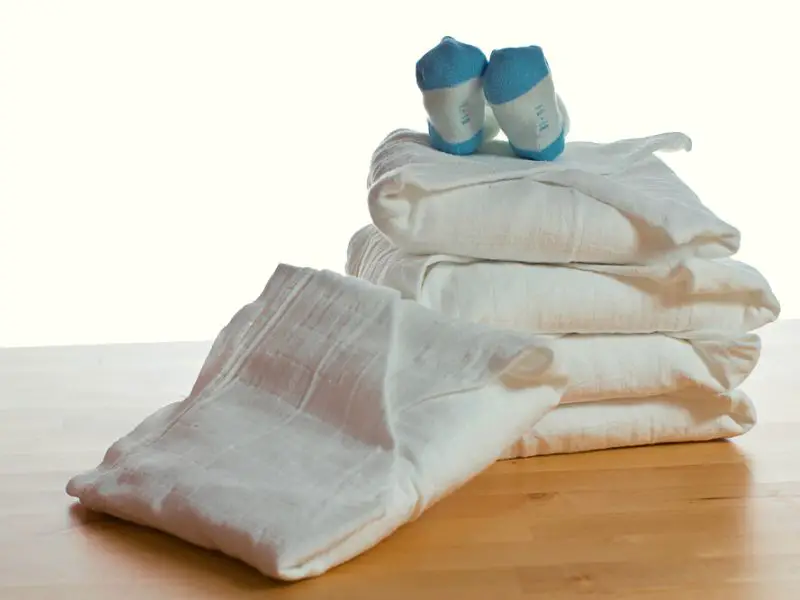
Pros
- These diapers are made from cloth and are reusable.
- Cloth diapers are hypoallergenic, and they are effective in preventing rashes
- Higher upfront cost, but over time can save you a lot more money
- Many parents find that cloth diapers are more gentle on the baby’s skin
- More friendly to the environment because of less waste in landfills
Cons
- Cloth diapers have a higher upfront cost
- More energy is used to clean and wash the diapers
- You spend more time in the laundry room
- They are less absorbent, requiring more diaper changes.
3. Hybrid
Last but not least, hybrid diapers are your other alternative. These consist of disposable inserts and cloth or reusable diaper coverings. The insert is less plastic and flushable, which is more environmentally friendly than disposable diapers.
As with cotton diapers, the outer covers tend to grow with your child, so you may use them for a few years before replenishing your supply. The absorbency of these liners is somewhat more excellent than conventional cloth diaper liners. Plus, it makes cleanup much simpler!
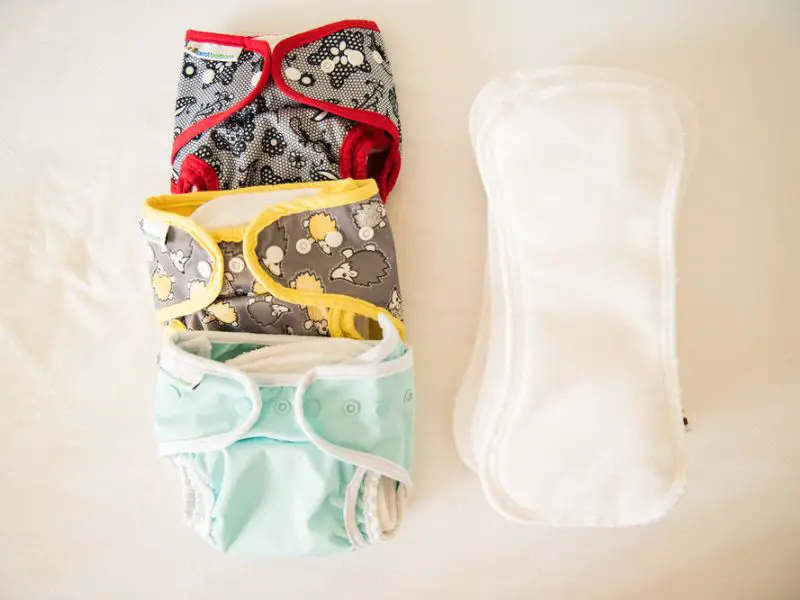
Pros
- These are interchangeable between disposable inserts or cloth inserts
- They are less harmful to the environment than disposable diapers and simpler to clean than cloth diapers.
- They are a better absorber than cloth diapers, making them ideal for newborns.
- You don’t have to worry about harmful components like bleach, die, and fragrance.
- They offer multiple styles and materials
Cons
- Bigger cost upfront, plus you need to buy inserts continuously
- The throwaway inserts may continue to wind up in landfills.
- Hybrid diapers aren’t always welcome in daycares.
Tips for Choosing the Best Diapers
While there are a few alternatives regarding environmentally friendly diapers, we are only covering disposable diapers below. People who don’t have a lot of time to do laundry, don’t have a lot of storage space, and can’t purchase in bulk all at once will find this an excellent alternative.
You can choose which brand is ideal for your needs using this advice. When going shopping, there are a lot of little things that add up to make a big difference. Here are some of them.
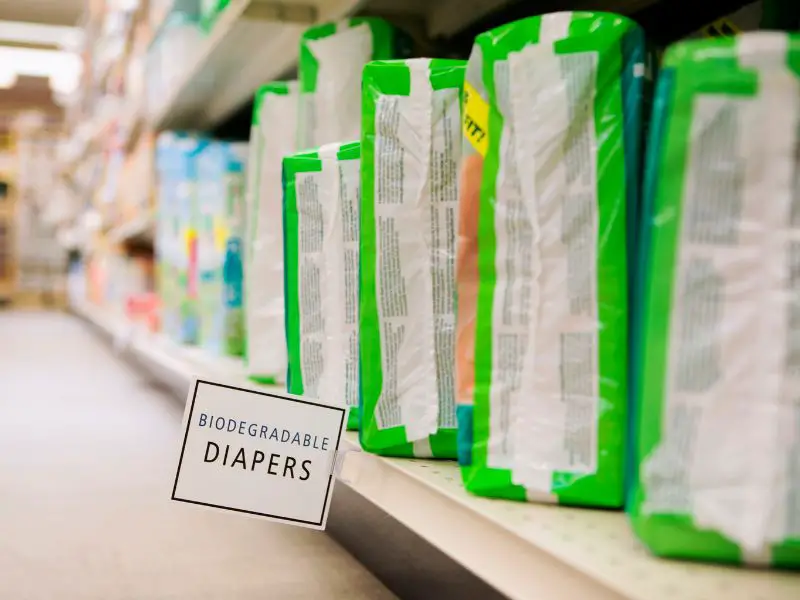
Materials
The first item to consider is the diaper’s materials. This may be bamboo, cotton, non-woven polypropylene, cellulose pulp, or wheat starch. While each material has advantages and disadvantages, the choice is within you.
You should select something absorbent (mainly if your infant is not yet eating solids) and comfy. If you know that your infant is allergic to bamboo, for example, you should avoid that material.
Materials to Avoid
Check what the diaper is not composed of in addition to the components it is made from. You should also emphasize your child’s comfort when selecting environmentally friendly diapers. Therefore, the diaper shouldn’t include chlorine-based chemicals, bleach, scents, colors, volatile organic compounds, dioxins, and other toxins. It’s critical to avoid these substances if your infant has delicate skin and suffers from diaper rash.
Fit and Comfort
Make sure the brand sells infant sizes before purchasing. Some manufacturers, for instance, may not have infant or preemie sizing. On the other side, they could not have anything suitable for an older child.
Disposal Method
Take note of the proper diaper disposal method. Can it be thrown out with your ordinary garbage, or should it be sent to a composting facility instead? When will the diaper be decomposed entirely? It’s vital to remember that even though some biodegradable diapers promise to degrade in a matter of months, certain parts of the diaper may still take several hundred years to break down.
Price
If you want to save money, you should select something cheap. However, keep in mind that the price of a product doesn’t always reflect its quality. The best thing to do is to shop around and see who offers the diaper at the best price. You could consider purchasing from brands promoting earth-friendly practices if your budget allows it. But, remember, sometimes it’s quality over price.
The Bottom Line
The Diaper industry is the world’s largest consumer of synthetic materials; the petroleum-based plastics used to manufacture these diapers are creating a massive impact on the environment. Diapers are responsible for significant plastic pollution in oceans and waterways.
Eco friendly diapers are the best choice because they are made of natural biodegradable materials like unbleached corn starch and bamboo fiber, which are friendlier to the baby’s skin and the environment.
The disposable diapers you choose for your kid are things they will wear every day. As parents, we are responsible for providing an environment-friendly option that helps them feel comfy while protecting the environment. So, choose an eco friendly diaper today.
Related: Eco Friendly Activities for Kids, Sustainable Packaging, Nut-Free Candy Corn

